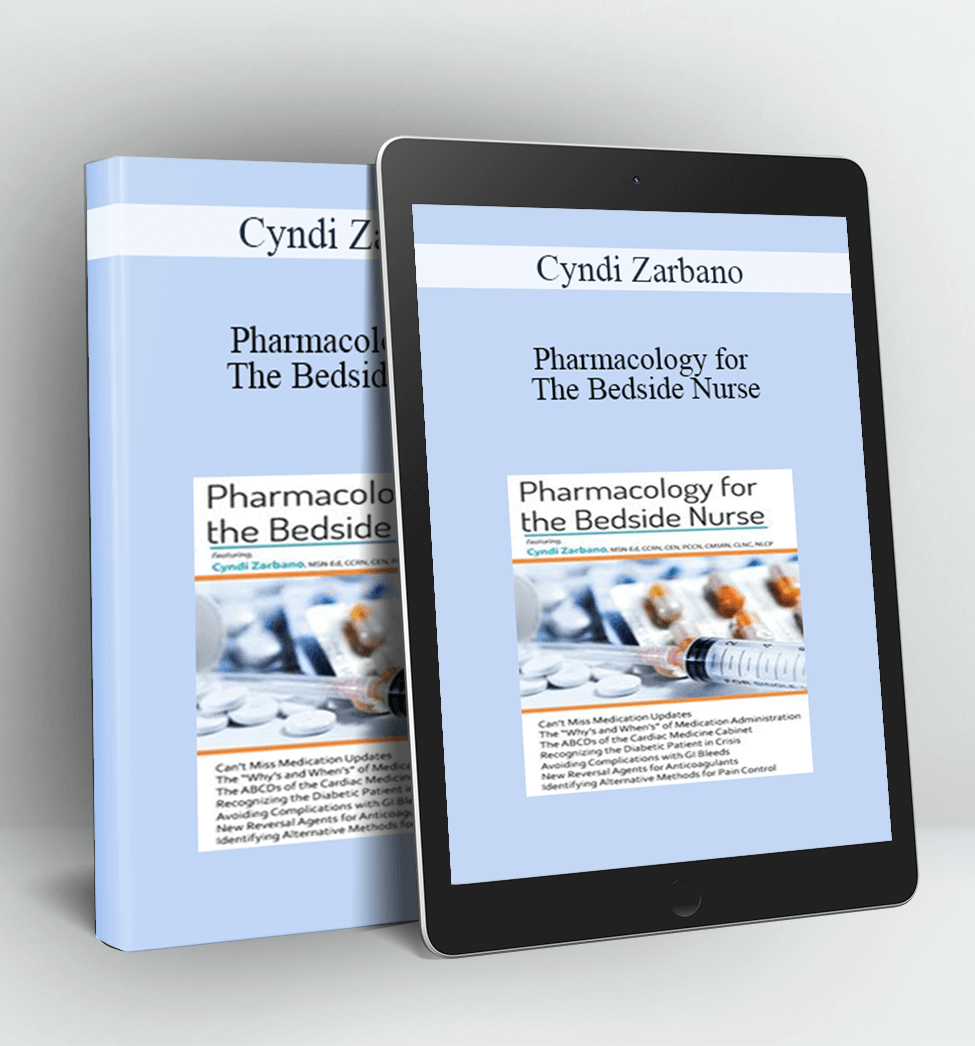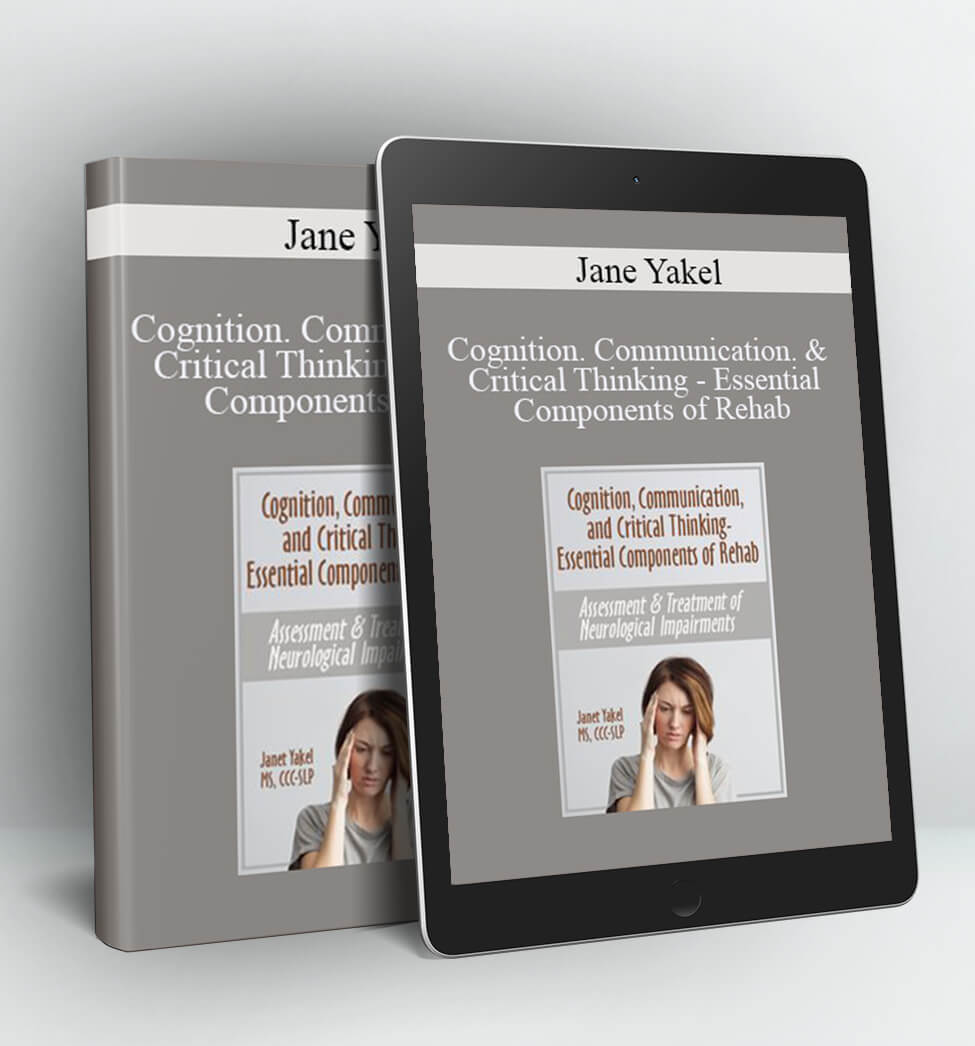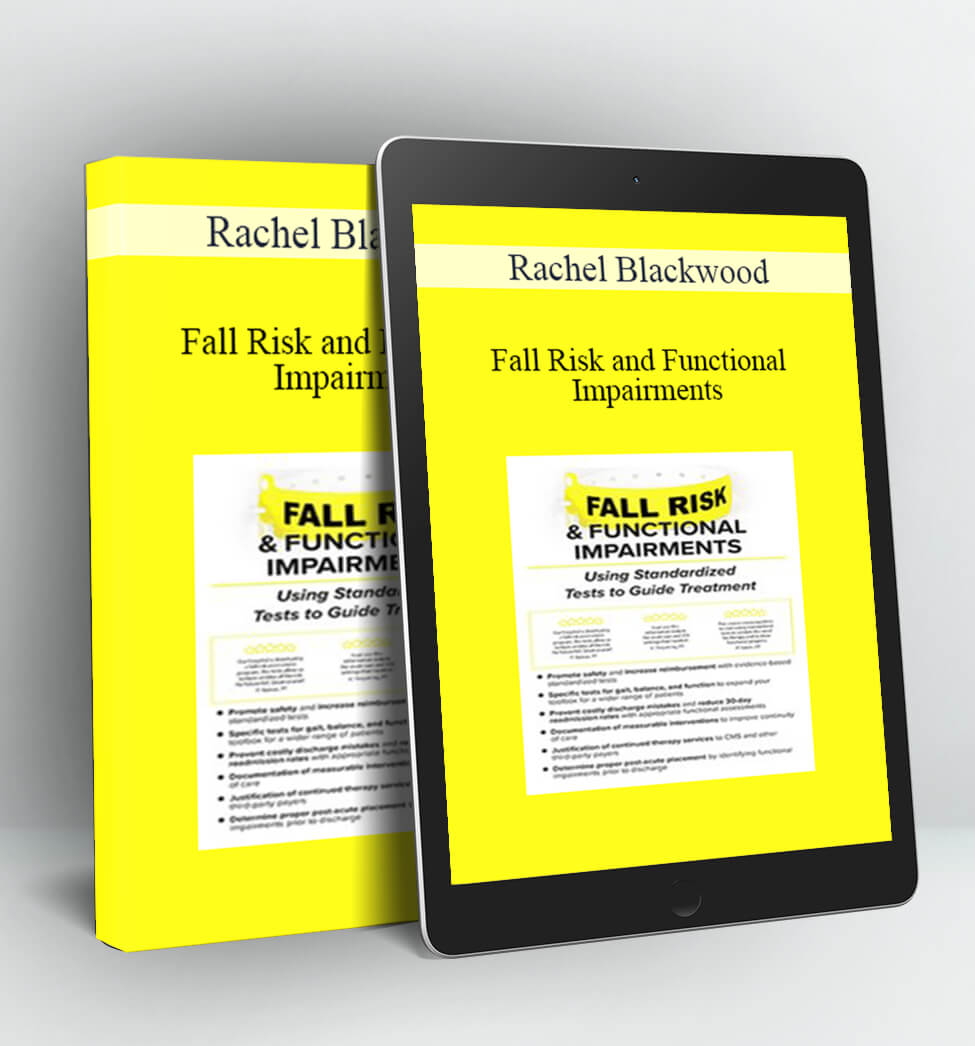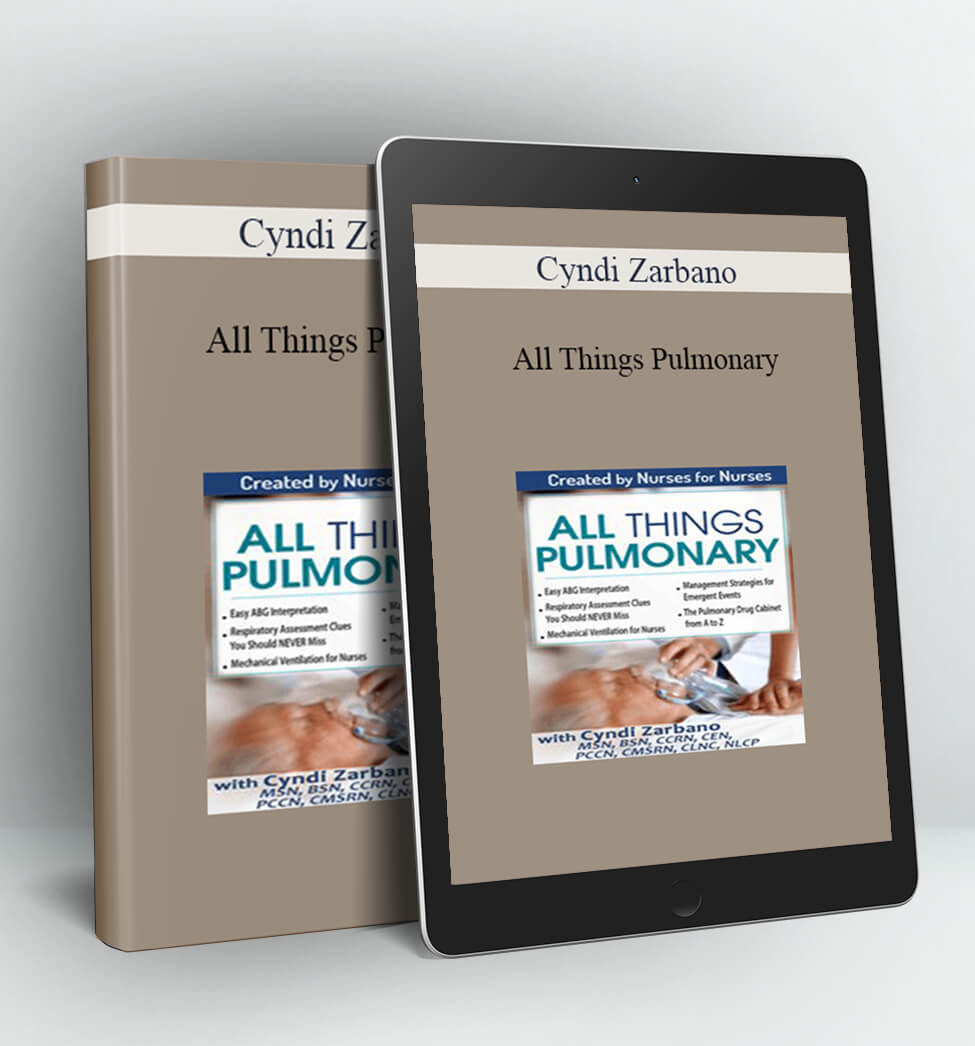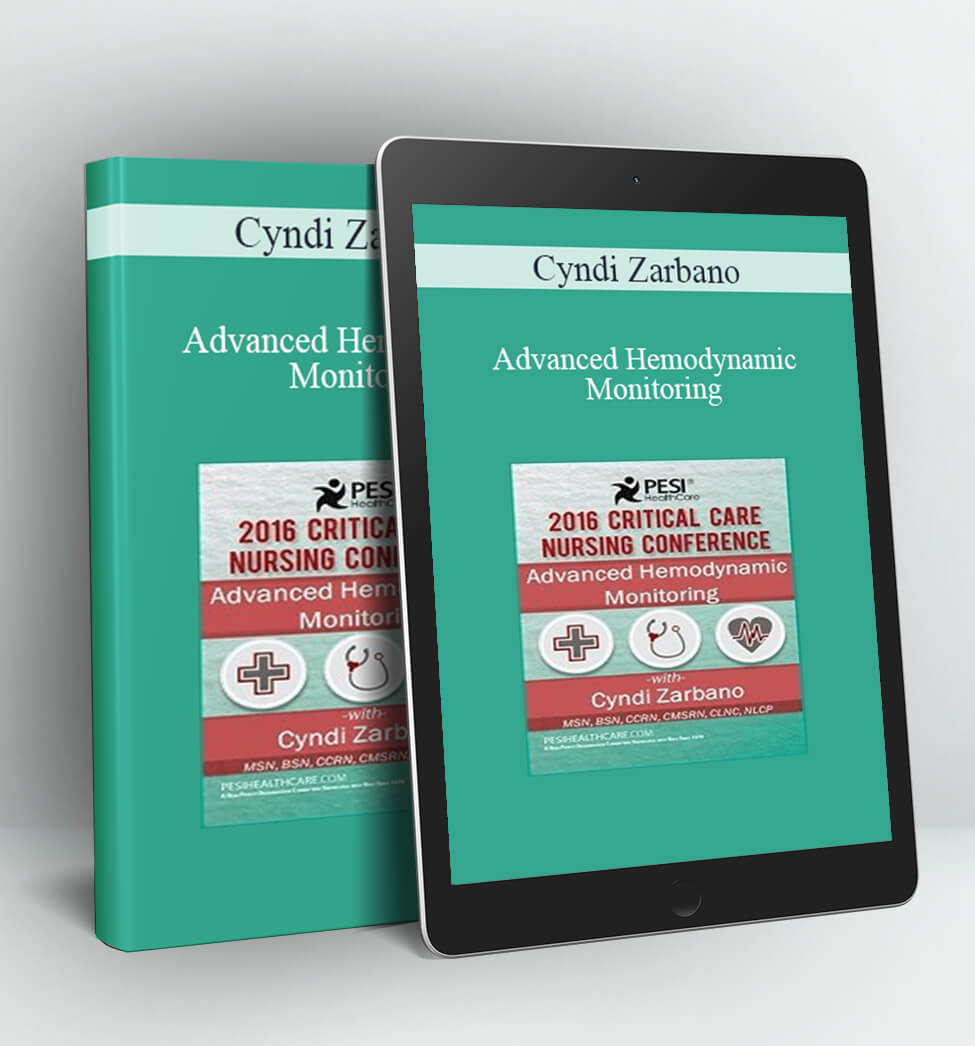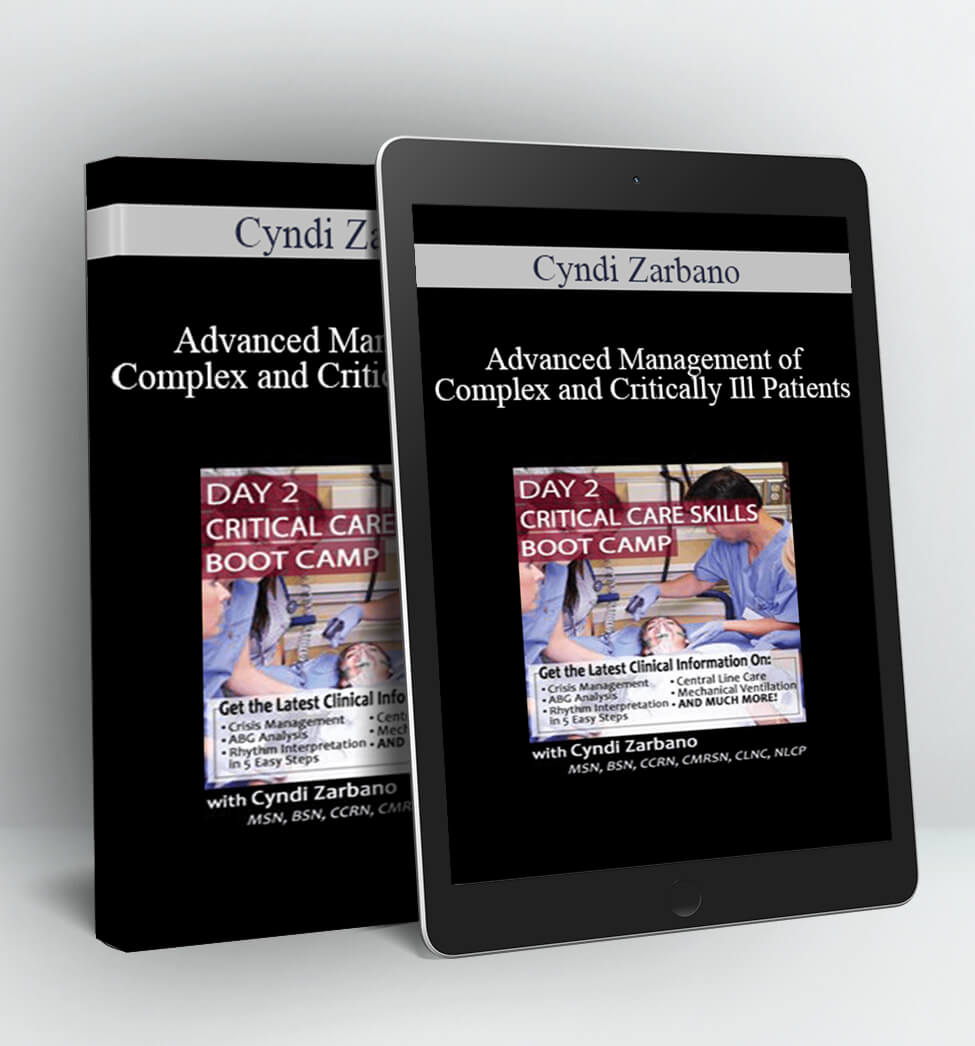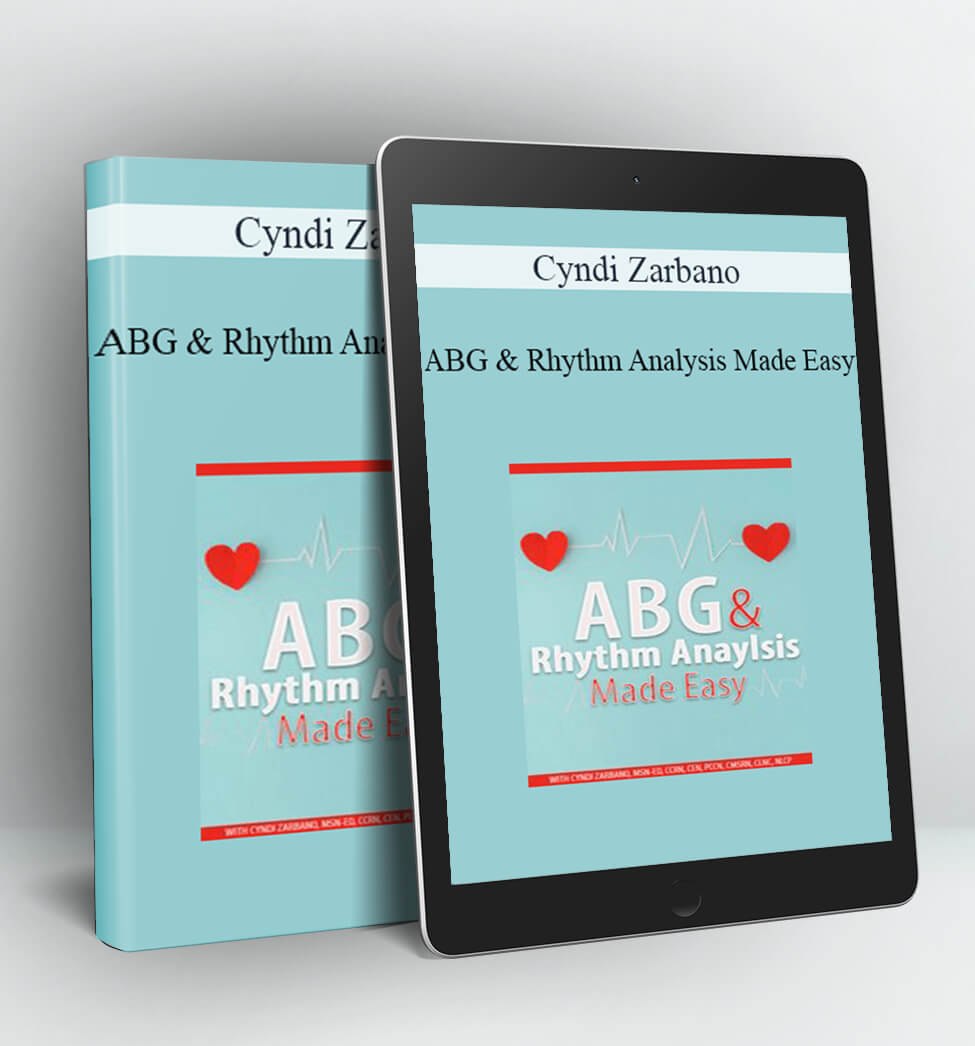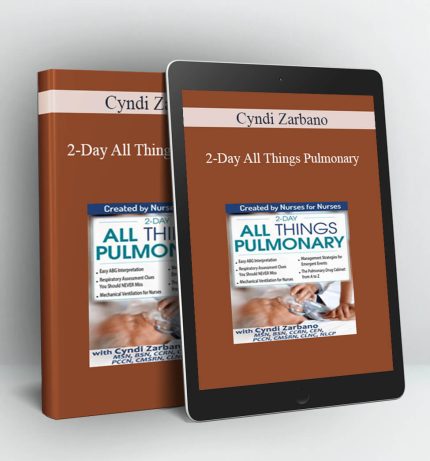Pharmacology for The Bedside Nurse – Cyndi Zarbano
- Can’t Miss Medication Updates
- The “Why’s and When’s” of Medication Administration
- The ABCDs of the Cardiac Medicine Cabinet
- Recognizing the Diabetic Patient in Crisis
- Avoiding Complications with GI Bleeds
- New Reversal Agents for Anticoagulants
- Identifying Alternative Methods for Pain Control
There are a staggering number of drugs that nurses are expected to keep current on. With so many changes occurring daily related to medications and treatment guidelines, how are you supposed to keep up?
Relax; expert, Cyndi Zarbano, MSN-Ed, CCRN, CEN, PCCN, CMSRN, CLNC, NLCP, has done all the reading and research for you! She’ll provide you with the most up-to-date information and give you tools and strategies to ensure that you understand “why and when” a certain medication is prescribed, what the potential side effects are and what to do if life-threatening complications occur.
Don’t miss this opportunity! This program is guaranteed to increase your knowledge of potential drug interactions, proper administration methods and monitoring procedures for a variety of medications used to treat common acute and chronic conditions. Cyndi is known for a teaching style that is entertaining, using stories and humor to help you retain what you learn, so you can pass that knowledge on to peers and the patients you care for.
- Identify strategies to avoid adverse drug events.
- Analyze the major classes of cardiovascular drugs.
- Recognize potential drug-to-drug interactions in the patient taking anticoagulants.
- Discuss critical side effects for the patient taking statins.
- Formulate a plan of care for the patient receiving blood transfusions.
- Prioritize interventions for the patient who has overdosed on opioids.
- Cardiac
- The Spectrum of Coronary Artery Disease
- The ABCDs of the Cardiac Medicine Cabinet
- ACEs/ARBs
- Beta Blockers
- Calcium Channel Blockers
- Diuretics
- MONA vs. FONA: Which is the Best Treatment
- Drug Priorities for Ischemic Injury & Heart Failure
- Must Know Side Effects of Alpha Blockers
- Antiarrhythmic Options
- Maintaining Electrolyte Balance with Diuretics
- Cardiac Benefits of Statins Beyond Treating Dyslipidemia
- Strategies to Avoid Rhabdo
- Endocrine
- The Newest Oral Hypoglycemics
- Short- & Long-Acting Insulins
- Ace Inhibitors & the Diabetic Patient
- Vasopressin for Diabetes Insipidus
- Acute Hyperglycemic States: DKA, HHS
- Insulin Drips
- Gastrointestinal
- Anticholinergics: Impact on the GI System
- Anti-emetics & How They Work to Guide Your Selection
- Understanding H2 Blockers & Proton Pump
- Inhibitors
- Upper & Lower GI Bleeds: Ulcers, Varices, Diverticulitis
- Protonix, Vasopressin, Octreotide
- Fluid Resuscitation & Blood Products: Avoiding & Treating TACO & TRALI
- Pulmonary
- Corticosteroids for the Airway
- Avoiding Complications
- Bronchodilators: MDIs vs. Nebulizers
- The Beta Blocker & Asthma Connection
- Pulmonary Embolus: From Thrombolytics to Interventional Radiology
- Anticoagulation Goals
- Exploring the 5 Categories of Anticoagulants:
- Coumarins
- Factor 10a Inhibitors
- Heparins
- Thrombin Inhibitors
- Anti-Platelets
- The New Reversal Agents
- Pain Control
- NSAIDS/Acetaminophen/Aspirin
- New Concerns with Opioids
- Medical Marijuana: What has Research Taught Us?
- Reversal Agents
- Managing Overdose
Salepage: https://catalog.pesi.com/item/pharmacology-bedside-nurse-30650
PLEASE REFER TO OUR PROOF : WATCH HERE!
” frameborder=”0″ allowfullscreen=”allowfullscreen” data-mce-fragment=”1″>
Delivery Method:
After your purchase, you’ll get access to the downloads page. Here, you can download all the files associated with your order.
Downloads are available once your payment is confirmed, we’ll also send you a download notification email separate from any transaction notification emails you receive from Vinlearn.

